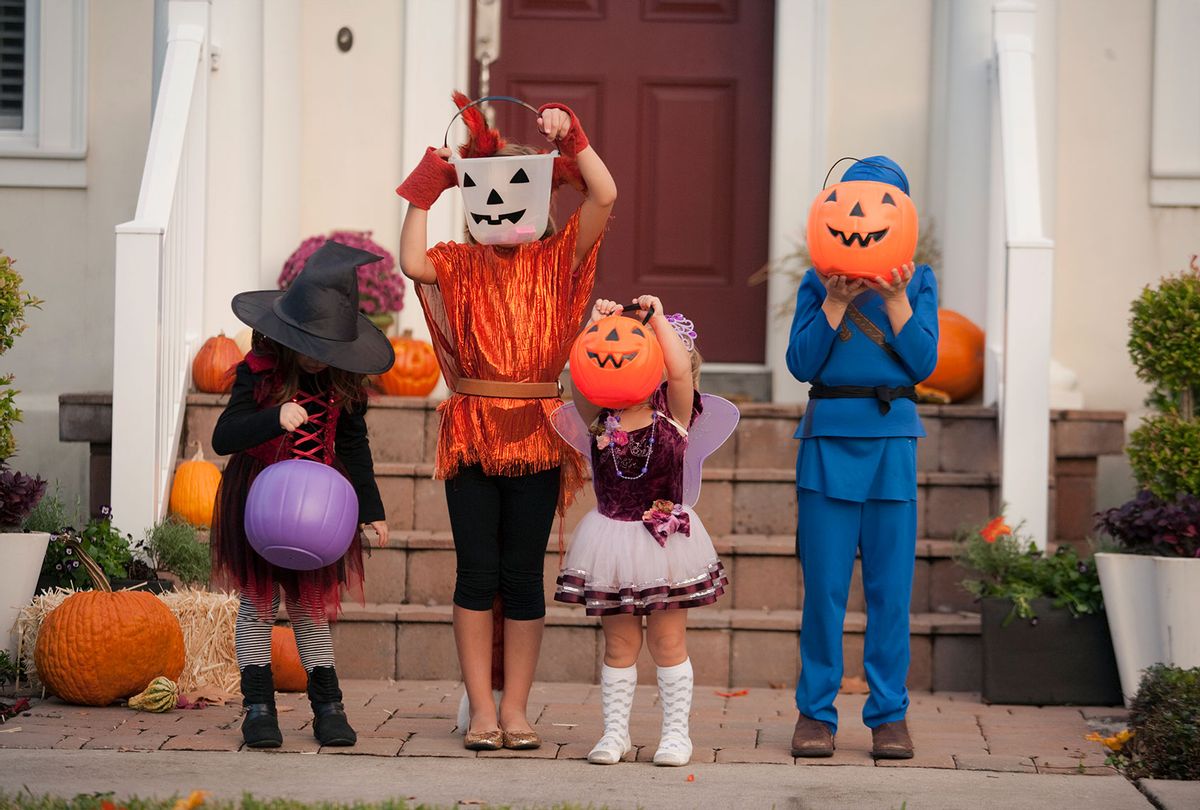Trick-or-treating is a Halloween rite of passage for American children, and an event that kids (and some teens) look forward to for months. Now, with no signs of the pandemic slowing, parents and kids are wondering whether trick-or-treating can be done in a safe manner that prevents transmission of the novel coronavirus.
"Quite frankly, it will not be the same situation all across the country. In other words there will be different states that are in different positions, as far as COVID-19," Howard Beige, board member of the Halloween & Costume Association and executive vice president of Rubie's Costume Company, told Salon.
In response to this, the Halloween & Costume Association collaborated with the Harvard Global Health Institute to create an interactive website that allows Americans to figure out the COVID-19 risk level in their county so they can decide whether they feel safe allowing their children to trick-or-treat and how to go about it if they do.
"We have the map, so people can kind of assess their risk level," Aneisha McMillan, marketing director of the Halloween & Costume Association, told Salon. "And then from that, there's a bunch of suggestions based on what color zone a person falls in. And then that way they can kind of make their own educated decisions on how they best want to celebrate."
Of course, if parents do let their children trick or treat, the next big question is how that can happen safely. Experts say that it is possible — meaning Halloween isn't cancelled just yet.
"I think the first step in that is at a minimum, no matter what the final decision is, you have to adhere to the CDC guidelines," Dr. Russell Medford, chairman of the Center for Global Health Innovation and Global Health Crisis Coordination Center, told Salon. "Children have to be supervised when they're out. Large crowds is not a good idea. They need to wear masks and maintain distance and avoid contact with other people as they're going from house to house."
Dr. Monica Gandhi, an infectious disease doctor and professor of medicine at the University of California–San Francisco, expressed similar views.
"For one thing, kids should definitely go trick or treating this year," Gandhi wrote to Salon. "We know how to protect kids and adults; it is by facial masking. There were no convincing increases in cases from places which can mask. So, since we have already taken so much away from kids this year, they should go trick or treating."
She added, though, that "we do not know the ability of rubber or plastic to block viral particles. To be safe, I would recommend a simple two-ply cotton or surgical mask underneath the rubber or plastic costume mask to cover the nose and mouth when trick or treating. Or you can cover the outside of the rubber/plastic mask with fabric but that may hurt the look! A costume mask will NOT interfere with a cotton mask covering."
Dr. Georges Benjamin, executive director of the American Public Health Association, felt that in-person trick or treating is a bad idea in 2020.
"I would suggest families plan for virtual Halloween this year," Benjamin wrote to Salon. "Kids can dress up a do FaceTime, zoom or other virtual events with families and friends." He recommended that they have "healthy snack and food options, fun foods and events like pumpkin carving contests, etc." For parents who do decide to send their children out, "they need to wear masks and use hand sanitizer frequently. Contactless snack handouts is difficult. But I don't recommend going door to door this year or [having] face to face parties."
Regardless of whether you follow Gandhi's or Benjamin's approach, one thing is clear: Trick or treating, like so many other things we took for granted before 2020, will have to be reevaluated.
"I think in this COVID-19 environment that we live in, and I think for the foreseeable future, we're going to have to make decisions based on science and public health recommendations not only to maintain safety, but also to conduct our lives," Medford told Salon. "It's the balance between society functioning and the protections that we need from a health and safety standpoint to conduct our activities in society."
He added, "I don't think there's ever going to be a zero risk scenario for any of us, except for complete social isolation, never come in contact with anyone else. However, if we're going to live in the world, we say we have to make decisions that are conservative but are based on risk."

Shares